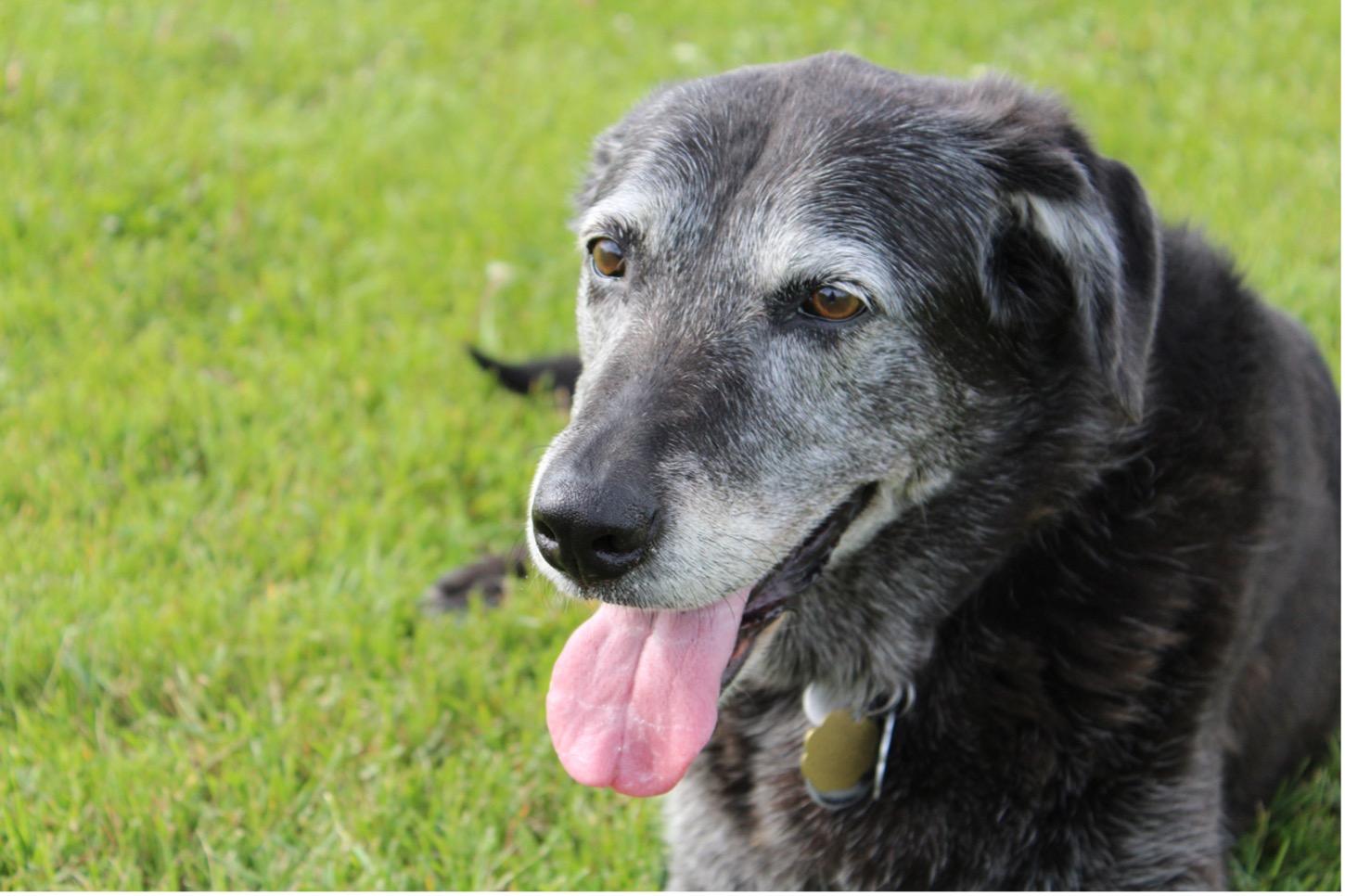With modern veterinary care, pets can live much longer, meaning we can enjoy them as part of the family even longer. But, along with longer life spans, we see more instances of diseases. We also recognize that with pets living longer, they have special needs. And, as November is National Senior Pet month, we would like to share some tips with you on caring for a senior pet.
When Is My Pet Considered a Senior Pet?
Pets will age depending on their species, breed, and environmental factors. But below is a rough rule of thumb to consider if you have a senior pet:
Cats and small dogs are considered seniors by the age of seven.
Larger breed dogs tend to have shorter life spans and are considered senior when they are about six years of age.
If you are curious how your pet’s years compare to human years, you can check out the AVMA charts below:
| Cat years | Human years |
| 7 | 54 |
| 10 | 63 |
| 15 | 78 |
| 20 | 97 |
| Dog years | Human years (*dog size lbs) |
| 7 | Small – Medium: 44-47 |
| Large – Very large: 50-56 | |
| 10 | Small – Medium: 56-60 |
| Large – Very large: 66-78 | |
| 15 | Small – Medium: 76-83 |
| Large – Very large: 93-115 | |
| 20 | Small – Medium: 96-105 |
| Large: 120 |
*Small: 0-20 lbs.; Medium: 21-50 lbs.; Large: 51-90 lbs.; Very large: >90 lbs.
The oldest recorded age of a cat is 34 years. The oldest recorded age of a dog is 29 years.
Diseases That Can Develop as Your Pet Ages
As your pet ages, they go through physical changes like you see in older people, such as some loss of sight, and hearing, some incontinence, and inability to get around like they used to. Senior pets are more prone to develop diseases such as:
- cancer
- heart disease
- kidney/urinary tract disease
- liver disease
- diabetes
- arthritis
- senility
Seven Tips for Helping Your Pet as They Age
- More Frequent Vet Visits. Yearly checkups are essential to keep your pet healthy. However, as pets age, they become more susceptible to diseases and other medical conditions. Consult your veterinarian about how often you need to bring your pet in for a wellness check.
- Monitor Your Pet’s Weight. According to the AVMA, weight can tremendously affect an older pet’s health. Obesity in older pets increases the risk of arthritis, difficulty breathing, insulin resistance or diabetes, heart disease, high blood pressure, skin problems, cancer, and other conditions.
Sudden weight loss in an older pet is also a concern, especially for cats. An overactive thyroid gland), diabetes, and kidney disease are common causes of weight loss in senior cats. Contact us if you notice any sudden changes in your older pet’s weight.
- Keep Them Mobile. Whatever physical activity they can manage, keep them at it. Ensure you adjust their exercise to their abilities. They may have once been able to go on runs with you but now may only be able to tolerate a slower or shorter walk.
- Get Them Laser Therapy at our Clinic. Laser Therapy provides a non-invasive, pain-free, surgery-free, drug-free treatment that we use to treat chronic pain and arthritis. They can experience relief often within hours, depending on the condition and your pet’s response. Your companion can benefit from this innovative approach to treating pain.
- Keep their Teeth and Gums Healthy. Dental disease is the number one problem in dogs and cats. While we don’t expect your pet’s mouth to smell minty fresh, neither should it be foul-smelling. Foul-smelling breath and discolored teeth are signs of dental disease. Dental disease can become very painful for your pet, contribute to heart and respiratory disease, and affect other organs.
- Help Them with Grooming. As pets age, it can become difficult for them to groom themselves properly, so you may need to help them with their grooming more frequently.
- Adjust Their Environment as Needed. You may need to make some environmental adjustments as your pet ages, and they cannot see, hear, or move as well as they used to. Here are some possibilities:
- Get them a pet stair or ramp. If you allow your pet to get up on your bed or couch to snuggle, a pet stair or ramp can help them manage. Stairs can also help dogs get in and out of your car.
- Make Their Environment Safe. Always keep dogs on a leash when they are outdoors. Keep your cat in a secured patio (catio), porch, or indoors. There are also cat fences, such as The Purrfect Fence, to keep them safe in your yard.
- Provide them with a comfortable bed. An orthopedic or heated bed could make a big difference in their sleeping comfortably and relieving arthritic pain.
Final Words
By watching your pet for signs of aging or subtle signs of pain, you can alert us when your pet needs veterinary help. By working together, your pet can enjoy a pain-free life into their golden years. There are many veterinary treatments that can eliminate or reduce both acute and chronic pain. Talk with your veterinarian to understand what your dog’s treatment options are.
We are here to help you keep your pet healthy through its golden years. Please don’t hesitate to contact us if you have any questions or need to schedule a visit.
Sincerely,
Your Friends at
Aspen Veterinary Clinic

